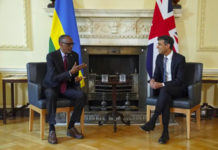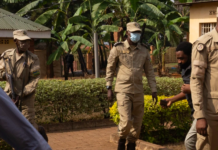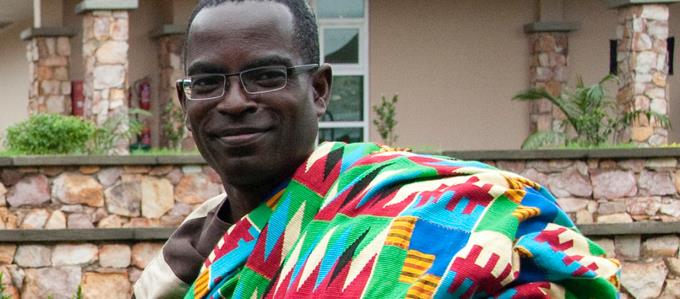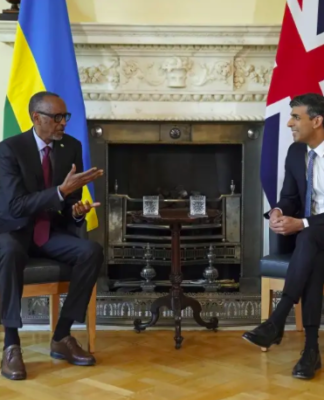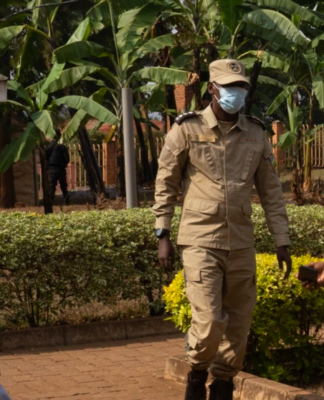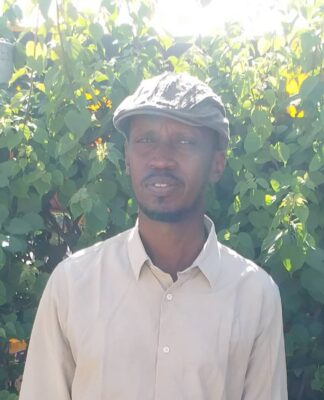Imagine you were born in west-Africa and were a bit of a ‘geek’ when you were growing up. Imagine your love for science landed you a full scholarship to study engineering in the US. Imagine that upon obtaining your degree, you got a job with the world’s leading software company, a job that would make you a millionaire before you turned 30. Imagine that though you were ‘living the American dream’, you kept thinking at how your country’s youth had little access to computers, which leaves them at a huge disadvantage on the job market. Imagine you decide to try and level the playfield or bridge the digital divide as they say. Where would you start? In which way could you touch the maximum people in a country or even continent where the youth need so much? And what about that lucrative career in Corporate America?
Today, I am inspired by Patrick Awuah of Ghana. My namesake was born in Accra in 1965. Patrick describes his young self as a shy boy who preferred staying in the classroom studying rather than playing outdoors.
Patrick studied at Achimota School, a boarding school located in Accra. The historical school was co-founded in 1924 by Dr. James Emman Kwegyir Aggrey, one of Ghana’s most illustrious scholars. Upon getting his high-school diploma in 1985, young Patrick Awuah secured a full scholarship to go and study engineering at Swarthmore College in Pennsylvania, in the US.
He was finally in his element, a place where his creativity could be nurtured and groomed! He was interested in creating new things and rarely confined himself to the classes’ assignments. There was a time where the young engineer in the making preferred creating a circuit instead of doing the homework of the day. Fortunately, the lecturer was so fascinated by the young man’s inventive mind that instead of punishing him for not following his instructions, he gave him an A, a full score in the American education!
By the time Patrick obtained his bachelor’s degree in Engineering and Economics, his brilliant academic track record had ensured he could land interviews with any of the American software industry players he wanted. Amongst them: Microsoft, the famous corporation founded by Bill Gates.
The interview with the company that brought us Windows and MS Office lasted 10 exhausting hours. But Bill Gates didn’t get where he is if he couldn’t flare raw talent, and Patrick Awuah was it! Patrick received a job offer the very next day, before was swept away by the competition.
In 1989, at age 24, Engineer Patrick Awuah walked in what was going to be his home for the next decade or so, Microsoft head quarter in Seattle. The young Ghanaian man had landed in a geeks’ paradise, if you allow me the term. Of course, the software engineer and program manager job entailed long work hours, but the non-stop creativity suited him just fine. The jobs benefits package was amongst the most attractive in the world, with stock options that made him a millionaire practically the moment he signed his contract.
Despite all the perks and the exceptional work environment, Patrick, as many other people in the diaspora, was longing to go back home and use his talent and acquired skills to develop Africa. His yearning to go back to Africa became more astute when he became a parent.
” When my son was born, I started to worry a lot more about Africa,” he shares.
“That event caused me to reconsider the importance of Africa for my children and their children, so that’s when I really started to think about returning to the African continent.”
In those days, there were a lot of sad news coming from the motherland – Somalia, Genocide in Rwanda, etc… It bothered him so much that the new generation would only have those shameful episodes as reference points when they would look back at their roots, he felt compelled to join in and work towards a solution.
The opportunity to go back home presented itself in 1997, when he was appointed to head Microsoft operations in Ghana. He saw it as a sign that it was time, not only to go home, but to stay and apply everything he had learned in the US to developing his country.
His initial inclination was to create a software company, as that was what he knew best. But he realised that it was practically impossible to get the profiles he would need.
“What I found out was that Computer science education at the time, they did not use computers. Students were studying a lot of theory, but they were not doing a lot of practical work. It seemed to me that the human capital was not prepared well enough and that if I attempted to set up a software company it would not be successful.”
What do you do when you can’t get the right human capital? You just train them yourself! The idea of creating a University was born. When he talked to his wife Rebecca, a fellow engineer at the Seattle corporation, she immediately supported him though she had never been to Africa before meeting her husband.
But now the big question was how to go from being a software developer and program manager to … running an institution of higher learning? One possibility is to just go back to school and acquire the necessary skills.
Patrick left Microsoft in 1997 and enrolled in an MBA program at UC Berkeley’s Haas School of Business. His plan: to learn how organizations function. He approached the new chapter as he had done when he started his studies at Swarthmore College: by being creative and not following the rules!
In his engineer’s mind, building a university was like making a circuit, but at a much larger scale, a circuit that would produce the human resources the country needed, in a way ‘multiply himself’ into several hundreds and maybe thousands, who would in turn build hundreds and thousands of companies.
In 1998, Patrick travelled to Ghana with a few friends and did a feasibility study for his private university project, a project he presented for his M.B.A. thesis.
He came back upon completing his MBA, all set for his big project. Though Patrick had raised a substantial chunk of the budget from his own savings and a loan, he knew he needed to develop a reliable network of private funders to sustain the institution. The idea was to get the interested parties to make donations to the university – which had a non-profit organisation status – instead of issuing shares of the school. The concept of a private non-profit university was very new in Ghana, even in sub-Saharan Africa, but Patrick didn’t want to fall in the trap of becoming more driven by profit making than education.
He reached out first to his former colleagues in Seattle, all of whom supported his project. The closest colleagues immediately donated USD 300 000. That was enough, with the money he had raised on his side, to help him recruit the teachers and rent a building.
A university classmate – Nina Marini – joined him and together they created Ashesi, which means ‘Beginnings’ in Twi, Ghana’s main language.
The Ashesi University –– officially opened its ‘class-rooms’ in 2002 in the neighbourhood of Labone in Accra to 30 students. It was nothing close to how you would picture a university, but it had all you need: an admissions office, a library, a computer lab, a classroom and a cafeteria. And teachers of course!
Although the University was going to be expensive to run if he wanted it to offer the best quality education, equitability was dear to Patrick’s heart. He made sure Ashesi was accessible to the talented youth whatever their means, or lack thereof. Students who couldn’t afford the tuitions received financial aid. Three years after its creation, Ashesi was proud to see its very first class graduate.
Ashesi University is an American style Liberal Arts University adapted to the African context. The school requires students to take modules in several subjects, beyond their elective studies, to expand their worldview. In addition, the core curriculum includes leadership seminars which explore the challenges leaders need to overcome and what constitutes good leadership. Ashesi’s founder’s philosophy is that educating youth is the best way to prepare the future.
“My mission is to educate a new generation of ethical leaders in Africa. Ethics, empathy and compassion are crucial for the next teacher-leaders of this continent.”
“Our students implemented an honor system, which is the first in Africa, where they promise not only to individually hold themselves to high standards of integrity, but to hold each other corporately responsible as well. Students commit to not cheat on exams, and they also vow to not tolerate those that do.”
The institution rapidly established its reputation, in Ghana and across the world. As you can imagine, the number of students rapidly and steadily increased over the years. Ashesi had to rent more and more buildings – up to 10 building around the original site – till they secured a land to build a campus.
They visited several places till they found the perfect place, on a hill in Berekuso, a town in the Eastern Region of Ghana, approximately one hour from Accra. The site was originally going to be used for real estate development, but when the Chief of Berekuso, Nana Oteng Korankye II, heard Patrick’s impassionate presentation of his vision for the youth, he decided the university would be more impactful that commercial or residential buildings.
The 100 acres Berekuso campus was inaugurated in August 2011. The University, which houses half of the school’s students, is modern, has its own health centre, and is highly ecological, with 40% of its energy solar-powered, 100 000 gallons of rain water storage and a waste treatment centre. The University has put Berekuso on the world map big time, as it has somehow become a tourist attraction of sorts, with guests wandering around taking pictures of the forward looking mini-village with magnificent gardens and breath-taking hilltop views.
Today, Ashesi has some 2000 students and alumni. The University offers four-year bachelor’s degrees in Business Administration, Computer Science and Management Information Systems. All students are required to complete a community service project in their last year before graduating.
It wasn’t an easy journey, but Patrick Awuah doesn’t dwell on the difficulties of building his university from the grounds up. The main thing that really had a toll on him was the accreditation process. Patrick quickly discovered that Ghana was one of the strictest countries when it came to authorise a private institution to award its own degrees.
It took them sixteen very frustrating years, years of explaining that his school was not for the privileged but rather for the talented youth with no means, years of explaining in detail the content of the curriculum and how they came about it, years of endless and seemingly fruitless meetings with the National Accreditation Board.
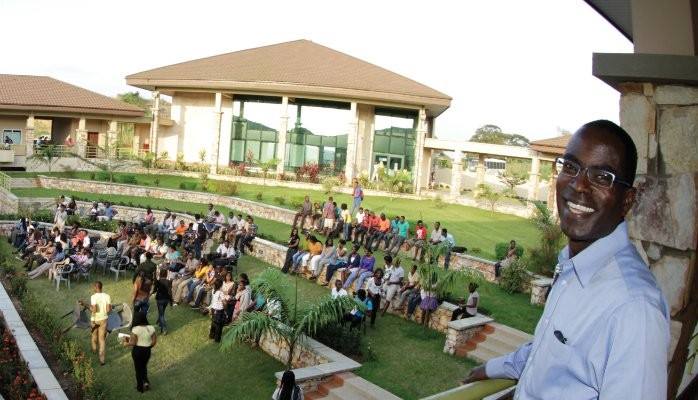 But it all was well that ended well. In 2016, the Education Ministry announced that Ashesi University would be granted a Presidential Charter, which meant they would finally be able to award their own degrees. The Charter was awarded by the President of Ghana in 2018, granting Ashesi full independence as a nationally recognised degree-granting institution. Though it was a very long and frustrating process, the decision was nonetheless a historical one: Ashesi University is the youngest university to ever be granted a Presidential Charter in Ghana’s history.
But it all was well that ended well. In 2016, the Education Ministry announced that Ashesi University would be granted a Presidential Charter, which meant they would finally be able to award their own degrees. The Charter was awarded by the President of Ghana in 2018, granting Ashesi full independence as a nationally recognised degree-granting institution. Though it was a very long and frustrating process, the decision was nonetheless a historical one: Ashesi University is the youngest university to ever be granted a Presidential Charter in Ghana’s history.
Patrick Awuah and his state-of-the-art, tech-focused ‘Beginnings’ University have received so many accolades, I would need another five pages to list them! Just to name a few, Patrick Awuah has served on the Advisory Committee on Voluntary Foreign Aid of USAID from 2010 to 2016; he is a Fellow of the Africa Leadership Initiative of the Aspen Global Leadership Network; a member of the Council on Foreign Relations; a member of the Tau Beta Pi honor society for excellence in engineering and a member of TED Fellows Program.
He was recognised both by his country’s highest authority, the President of the Republic of Ghana, who awarded him the Order of the Volta – and fellow scholars around the world, such as his alma mater, Swarthmore College, and Babson College, both of which awarded him an Honorary Doctor of Laws – in 2004 and 2013 – the University of Waterloo in Canada, which awarded him an honorary Doctor of Engineering earlier this year.
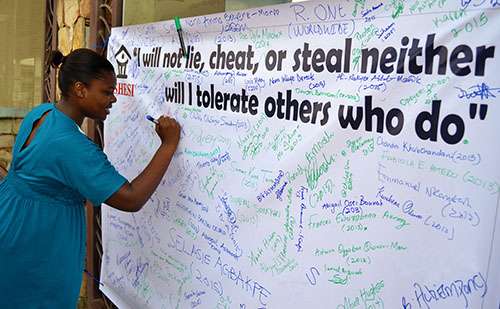 Rebecca Awuah, Patrick’s wife, also left Microsoft and joined Ashesi in 2008 as a faculty member and head of department. They live in Accra with their two kids: the son whose birth prompted them to create Ashesi, and his younger sister.
Rebecca Awuah, Patrick’s wife, also left Microsoft and joined Ashesi in 2008 as a faculty member and head of department. They live in Accra with their two kids: the son whose birth prompted them to create Ashesi, and his younger sister.
You might ask yourself: is the school already producing the type of ethical leaders’ Dr Awuah had in mind when he started his ambitious project?
I can boldly say yes. A fitting example is Ms Araba Amuasi, an alumnus from the Class of 2007. Araba had two highly lucrative software development job offers when she graduated but she rejected both. Instead, she opted for a Chief Operating Officer job at the Village of Hope Orphanage, where she had volunteered for her final year community service.
“The fulfilment doesn’t come from finances,” Araba says. “My education opened opportunities for me to see different classes of people. When you realize that you are among the privileged, I feel it is your responsibility to give back—to let your education benefit other people.”
Who said that African Renaissance is an utopia?
Right Your Legacy, Dr Patrick Awuah! Thank you Believing, for taking a chance and coming back to Africa to build the leaders of tomorrow!
Source: Um’Khonde Habamenshi

